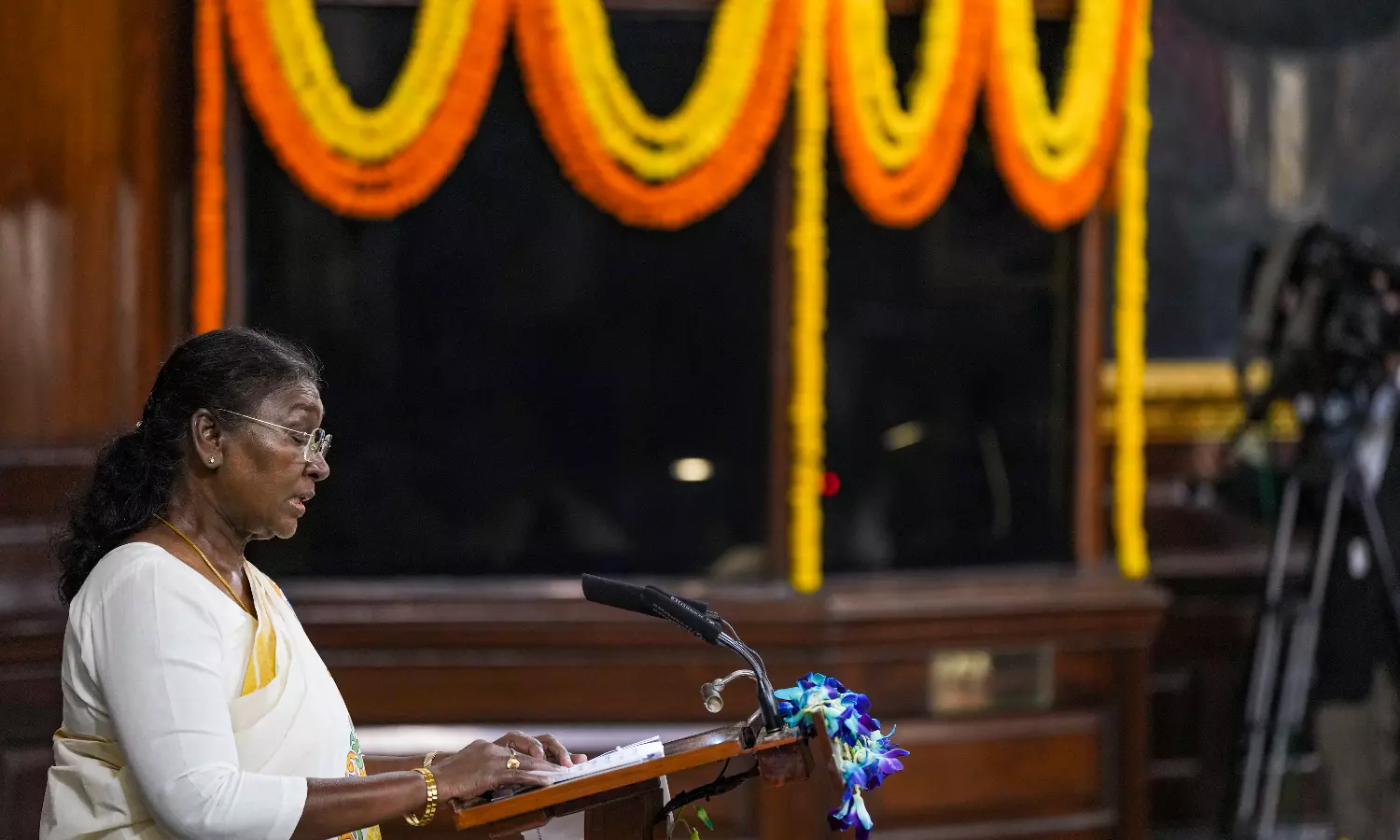AA Edit | Constitution helps India adapt to changing times

The Constitution is a live and progressive document, President Droupadi Murmu said, while addressing a joint session of Parliament on Constitution Day on Tuesday, which also marks 75th anniversary of the adoption of the document by the Constituent Assembly. The President’s words describe the essence of the document which has survived to this day and helped democracy, too, survive in this country.
The Constitution, adopted by the Constituent Assembly on November 26, 1949, was a reflection of the thought processes of the people of that period in our history who were elected to that august assembly. A country that was born after about 200 years under foreign occupation and out of a painful process called Partition chose to become a democratic republic, promising its people justice, liberty and equality. Despite the pressures of Partition on religious lines, this country chose to become a secular nation. While prescribing equality before law and equal protection of the law for all people, it went beyond the brief of equality and ensured that its weaker sections — whether they are socially and economically backward for historical reasons or are linguistic and religious minorities — special protection. It was a thoughtful and progressive document, for sure.
And it ought to be a living document. As Thomas Jefferson, one of the founding fathers of the United States whose thought contributed to its making, noted, “Each generation is as independent as the one preceding, as that was of all which had gone before… It has then, like them, a right to choose for itself the form of government it believes most promotive of its own happiness.” The Indian Constitution, or for that matter, the US Constitution, has not been rewritten by every generation, as Jefferson suggested, but they both underwent periodic amendments while keeping the basic structure intact.
There are demands for amending the Constitution further, bringing in some changes which could fundamentally change the way our nation is run. Such as the idea of “one nation one election”, and the introduction of a uniform civil code. They are ideas which this nation will adopt one day but the question is whether we as a nation are ready for them and what kind of configuration their proponents have in mind. It may be remembered that the members of the Constituent Assembly discussed every article of the Constitution threadbare and decided on their inclusion in a democratic way. Hence such far-reaching changes must be introduced keeping in mind the practice the Constituent Assembly had followed.
It is a paradox that both the ruling combine and Opposition alliance swear by the Constitution; each accuses the other of undermining the letter and spirit of the document and is prepared to go to war for its protection. The fact of the matter is that the protection of the document is in the hands of the people; how it is interpreted and made use of are decided by the choices people make. In short, it is the character of the man and woman on the street that decides the character of the Constitution. That’s how it becomes a living document. Dr Bhimrao Ramji Ambedkar, its architect, succinctly put it: “However good a Constitution may be, if those who are implementing it are not good, it will prove to be bad. However bad a Constitution may be, if those implementing it are good, it will prove to be good.”
Let India’s Constitution remain a progressive, living document.

